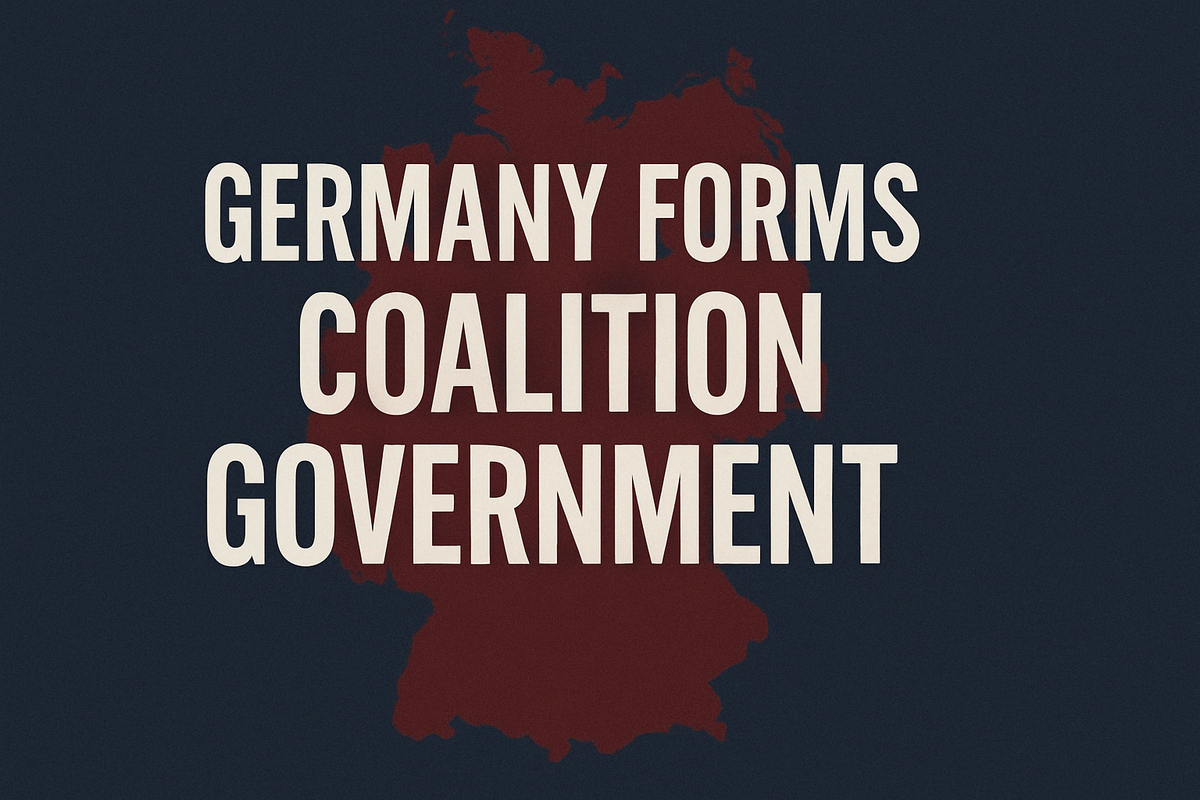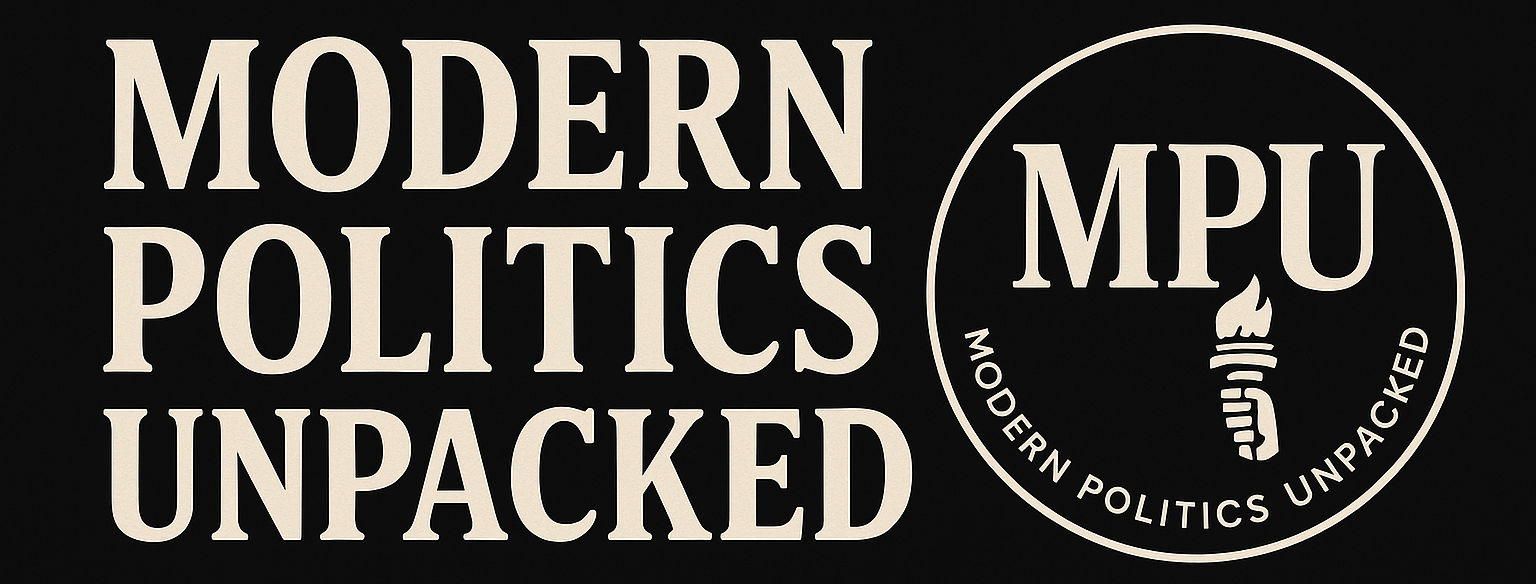Germany in Transition: How the New Coalition Government Aims to Steady the Nation

Germany has entered a new chapter in its political history. Following a fragmented and fiercely contested federal election in February 2025, two of the country’s traditional rivals—the center-right Christian Democratic Union/Christian Social Union (CDU/CSU) and the center-left Social Democratic Party (SPD)—have joined forces to form a grand coalition government. This marks the fourth such alliance since World War II, created to bring stability amid economic headwinds, the rise of populist forces, and increasing international uncertainty.
The decision to forge a coalition, while controversial, underscores the urgency felt across Germany's political establishment: prevent further gains by the far-right Alternative für Deutschland (AfD), stabilize domestic governance, and reposition Germany as a pillar of European unity. With Friedrich Merz of the CDU expected to take the reins as Chancellor, all eyes are on how this unlikely alliance will navigate complex policy demands and divided public sentiment.
The Road to Coalition: A Fragmented Bundestag and a Rising Far-Right
Germany’s 2025 elections produced a Bundestag more polarized than ever. The CDU/CSU secured the most votes with 28.3%, while the SPD trailed at 16%. Yet it was the 21.4% claimed by the far-right AfD that sent shockwaves through the political system. The AfD, now the second-largest party, drew votes from both urban disillusionment and rural conservatism.
Mainstream parties, including the Greens and the Free Democratic Party (FDP), ruled out working with the AfD, citing its nationalist rhetoric and anti-democratic tendencies. That left CDU/CSU and SPD with little choice but to reunite, despite ideological differences and prior friction.
This coalition deal was not forged overnight. Negotiations took nearly two months, with intense debates over tax policy, migration, defense, and climate change. Internal resistance, particularly from SPD's youth wing and CDU traditionalists, nearly derailed talks. But the specter of another election—potentially more favorable to AfD—pushed both parties to compromise.
Leadership and Cabinet Composition: A Balanced Power Share
Under the coalition deal, Friedrich Merz is set to become Germany’s next Chancellor, pending a Bundestag confirmation vote scheduled for May 6. The SPD will appoint Vice Chancellor Lars Klingbeil, maintaining influence in executive decisions.
Cabinet positions are split almost evenly. The CDU/CSU will control the Ministries of Foreign Affairs, Economic Affairs, Interior, and the newly created Ministry for Digital Affairs. The SPD takes charge of Finance, Defense, Environment, and Labor.
Notable appointments include:
- Annegret Kramp-Karrenbauer (CDU) as Foreign Minister
- Saskia Esken (SPD) as Finance Minister
- Dorothee Bär (CSU) heading Digital Affairs
The cabinet is younger, more diverse, and contains more women than any prior German administration. It reflects a generational shift designed to appeal to younger voters, who are increasingly disenchanted with traditional politics.
Economic Revitalization and Fiscal Flexibility
The coalition agreement introduces a massive €500 billion infrastructure investment plan to be rolled out over the next decade. Key targets include renewable energy expansion, nationwide 5G coverage, and upgrading rail and public transport systems.
In a major shift, defense spending will rise to 2.5% of GDP, breaking long-standing budgetary restraints. The coalition also seeks to circumvent Germany's constitutional "debt brake" to allow borrowing specifically for defense and infrastructure.
Key fiscal strategies:
- Tax cuts for low- and middle-income families
- Corporate tax reform to encourage innovation
- Investment in semiconductor and green tech sectors
This marks a departure from the austerity politics that defined Germany's post-2008 economic philosophy. SPD's influence is clear in the emphasis on public welfare and income equity, while the CDU has secured commitments to pro-business reforms.
Immigration, Security, and Social Policy
Immigration policy under the new government will take a more conservative turn. Deportations of individuals with criminal convictions will be accelerated. Asylum procedures will be streamlined, and the criteria for family reunification tightened.
However, the coalition also acknowledges Germany's demographic challenges. A new "Skilled Worker Visa" system is planned to attract foreign talent in healthcare, engineering, and IT.
On social policy, the coalition will:
- Raise the minimum wage to €15/hour
- Expand access to childcare
- Introduce a basic pension adjustment to offset inflation
- Increase funding for mental health services
These measures aim to placate SPD voters without alienating CDU's base.
Public Reaction and Political Implications
The coalition has received a mixed response. Business groups welcomed fiscal expansion and defense investment. Environmentalists expressed cautious optimism about climate pledges, though some criticized the lack of hard emissions targets.
Among voters, skepticism runs high. A Der Spiegel poll shows only 42% believe the coalition will last its full term. Merz’s approval ratings remain below 50%, while AfD has gained further support, especially in eastern Germany.
Key concerns include:
- Potential bureaucratic gridlock
- Fears of SPD being overshadowed
- CDU backlash from fiscal conservatives
Despite these tensions, many analysts believe the coalition is a necessary stopgap to prevent a lurch toward authoritarian populism.
Europe Watches Closely
Germany's role in the European Union is central to the coalition's foreign policy platform. The new government has pledged to:
- Push for EU-wide digital sovereignty
- Increase military collaboration within NATO
- Reinforce trade partnerships with France, Poland, and Italy
Brussels responded positively to Merz's appointment, viewing him as a stabilizing force. However, some fear his pro-business slant may complicate joint EU climate goals.
The coalition also seeks to mediate in transatlantic tensions, especially as the U.S. under Donald Trump shifts toward isolationism. Germany plans to increase its leadership in UN peacekeeping and Arctic diplomacy.
Conclusion: Can the Grand Coalition Deliver Stability?
Germany's grand coalition represents a calculated risk: unite centrist forces to keep extremists at bay and reassert Germany’s global leadership. The success of this strategy will depend on its ability to implement transformative policies without collapsing under internal contradictions.
Friedrich Merz and Lars Klingbeil must prove that political opposites can govern effectively. With global markets, European allies, and their own citizens watching closely, the stakes for Germany have rarely been higher.
Sources:
